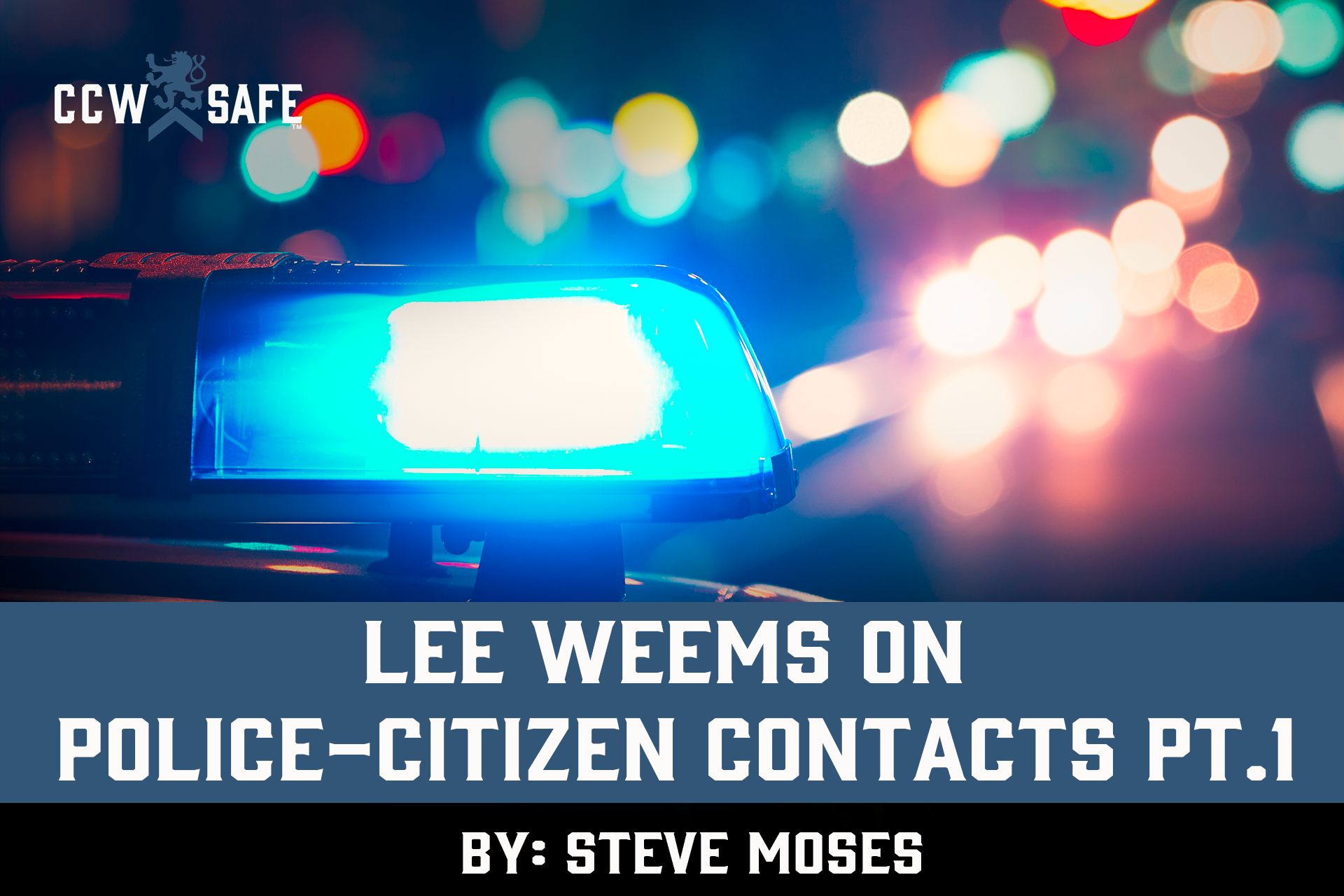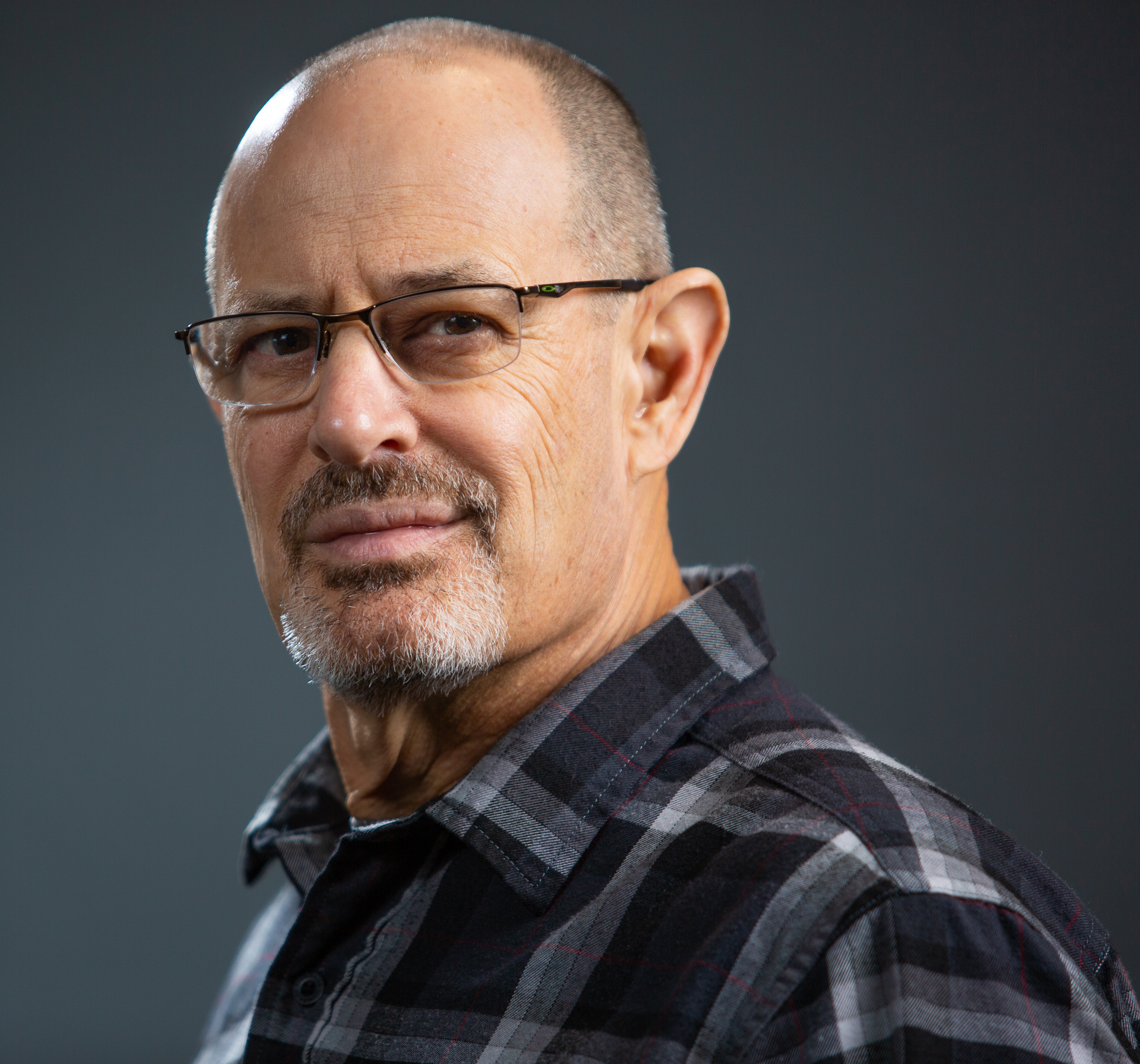
Posted on August 17, 2020
LEE WEEMS ON POLICE-CITIZEN CONTACTS PT.1
LEE WEEMS ON POLICE-CITIZEN CONTACTS PT.1
Hopefully, most concealed carriers have given some thought as to what might occur if they encounter a peace officer (a term I will use throughout rather than law enforcement officer to describe a person properly licensed by the state or federal government and granted the authority to detain and arrest others) during a traffic stop or perhaps immediately after an incident in which the concealed carrier was forced to lawfully use or threaten to use force against another individual or individuals. If not, now might be a good time to giving some thought to the subject. The reason for this is sound: bad things sometimes happen anytime when one or more of the parties are under stress, armed, and a possibility of misinterpretation exists.
I am unable to think of a firearm trainer more qualified to speak on this subject than Lee Weems. Lee routinely teaches classes on managing contacts between peace officers and citizens tailored specifically to both communities (law enforcement and private sector). These classes can help ensure that both parties not only gain a better understanding of what they and the other party lawfully can and can’t do during a traffic stop (and other similar interactions) as well as the tremendous pressure on both parties following the emotional and often confusing aftermath of a use-of-force incident.
Lee is the owner of First-Person Safety and a Chief Deputy in Georgia who has been a peace officer since 1999 who has operated over the years in the roles of patrolman, field training officer, detective, and supervisor. He is a fantastic shooter and earned a Distinguished Weapons Expert rating based upon his scores in the Federal Law Enforcement Training Center’s Firearms Instructor Training Program. He holds multiple instructor certifications including, but not limited to, FBI Police Firearms Instructor, FBI Law Enforcement Instructor, FLETC Use of Force Instructor, Active Shooter Instructor, and Basic Tactical Medicine Instructor. He teaches college classes on political science and criminal justice. I could go on and on, but hopefully I have made the point by now that he is imminently qualified to teach at a high level on multiple subjects of interest to concealed carriers.
I asked Lee to touch on some key principles for concealed carriers when it came to interacting with law enforcement. As a former deputy constable (reserve) myself, the first thing that I want to say is that by far the majority of peace officers out there are fine men and women, and by no means am I implying that concealed carriers should know how to delicately handle interactions with them. Regardless of what the media might suggest, a normal peace officer is adverse to taking a human life and knows that any controversial or questionable actions taken by him or her are always subject to major scrutiny by the media (who often takes liberties with the actual facts), his or her own department, the state in which they were licensed, and in some cases even federal agencies. I believe that two encounters that concern citizens are traffic stops and first contact with peace officers immediately after a defensive shooting.
Lee said the genesis of his class started with a class called “Interacting with Armed Citizens” in which he traveled around the State of Georgia teaching peace officers that just because a citizen had a firearm it was not an exception to the Fourth Amendment (this Amendment prohibits unreasonable searches and seizures and addresses actions that would constitute probable cause to conduct lawful searches and seizures). The original lesson plan was peace officer-oriented and an attempt to dispel the notion that possession of a firearm by a citizen was automatically “bad” and that mere possession of a firearm meant that it could legally be seized. He received requests from private citizens that wanted to attend the same class, and eventually decided to teach the class upon an open enrollment basis. He noted that the questions that he was asked by peace officers and the questions asked by private citizens tended to be different. Peace officers just wanted to know that the rules are that they needed to play by, and citizens tended to ask more deep and nuanced questions in an attempt to obtain a feel for what might happen during an encounter with peace officers and what rights both they and peace officers had.
Private citizens should understand that it is not the Second Amendment but the Fourth Amendment that dictates whether a seizure of a person by a peace officer is reasonable. State laws addressing possession of a handgun can vary, and in Georgie a person cannot be detained if they are in possession of a handgun for the sole purpose of investigating whether or not they have a valid carry license. Private citizens should know that peace officers may request their consent to conduct a search of their person or vehicle or provide evidence that they are in possession of a valid carry permit, and the private citizen is free to not agree to the search or inquiry. Exceptions include when the peace officer has a suspicion that is both reasonable (and articulable) that the private citizen has committed a crime and is possibly armed and presently dangerous. Concealed carriers should be aware that the view of the courts in some jurisdictions may be that an armed private citizen should be considered presently dangerous.
Rather than go into any more detail regarding the rights that private citizens have during police-citizen contacts from unreasonable searches and seizures, I am going to encourage the readers to attend one of Lee’s classes and obtain the correct information directly from him for the reason that this topic is nuanced, laws related to contacts between armed citizens and peace officers can vary from state to state, and my personal concern that a reader might rely on what I have written in this short article and assume that they are fully informed only to find the next time he or she has a contact with a peace officer that was not the case. Concealed carriers are advised to always comply with state and federal laws, and in the event of contact with a peace officer to follow whatever rules are in place for that state when it comes to declaring possession of a firearm and displaying a valid carry permit. Private citizens who make a decision to challenge a peace officer in order to merely prove a point may find someday that they have ran into a peace officer that will accept their challenge. If the private citizen is in error or less than completely informed as to what they can and cannot do, they may find that the final outcome of issuing such a challenge was definitely not worth pursuing.
However, there is one topic that I am not going to shy away from, and that is Citizen-Police contact immediately after an incident in which the armed citizen was forced to lawfully use or threaten to use force against another individual or individuals. This topic will be discussed in Part Two, and concealed carriers may be surprised to find out why they may not be completely out of danger after a use-of-force incident while still waiting for law enforcement officers to arrive on the scene.
 |
Steve MosesSteve Moses has been a defensive firearms trainer for over 26 years and is a licensed Texas Personal Protection Officer with 7 years of experience performing as shift lead on a church security detail for a D/FW area metro-church. Steve is a co-owner and Director of Training for Palisade Training Group, LLC based in Dallas, Texas. Moses is a retired deputy constable and spent over 10 years on a multi-precinct Special Response Team. He owns multiple instructor certifications, including Rangemaster Advanced Handgun Instructor and Defensive Shotgun Instructor, Red Zone Knife Defense Instructor and Adaptive Striking Foundations Instructor, Modern Samurai Project Red Dot Sight Instructor, and State of Texas Personal Protection Officer Instructor. Steve holds a BJJ Brown Belt in Relson Gracie Jiu Jitsu. He is a content contributor for CCW Safe and writes weekly articles on various subjects of interest to concealed carriers. Moses shoots competitively and holds an IDPA Expert rating. Steve is an annual presenter at the Rangemaster Tactical Conference. |